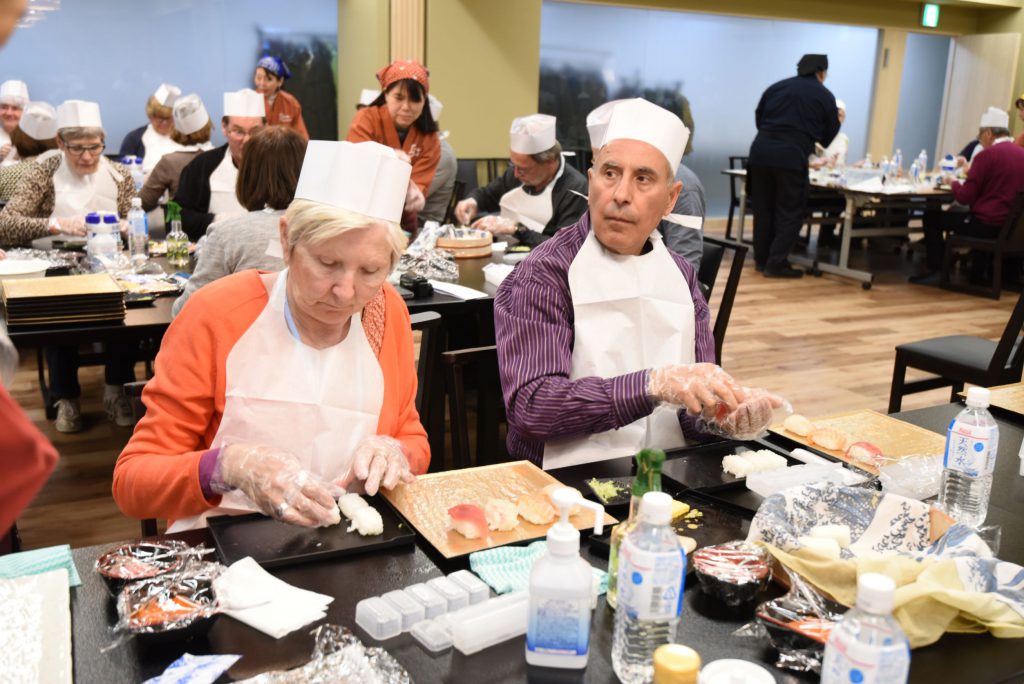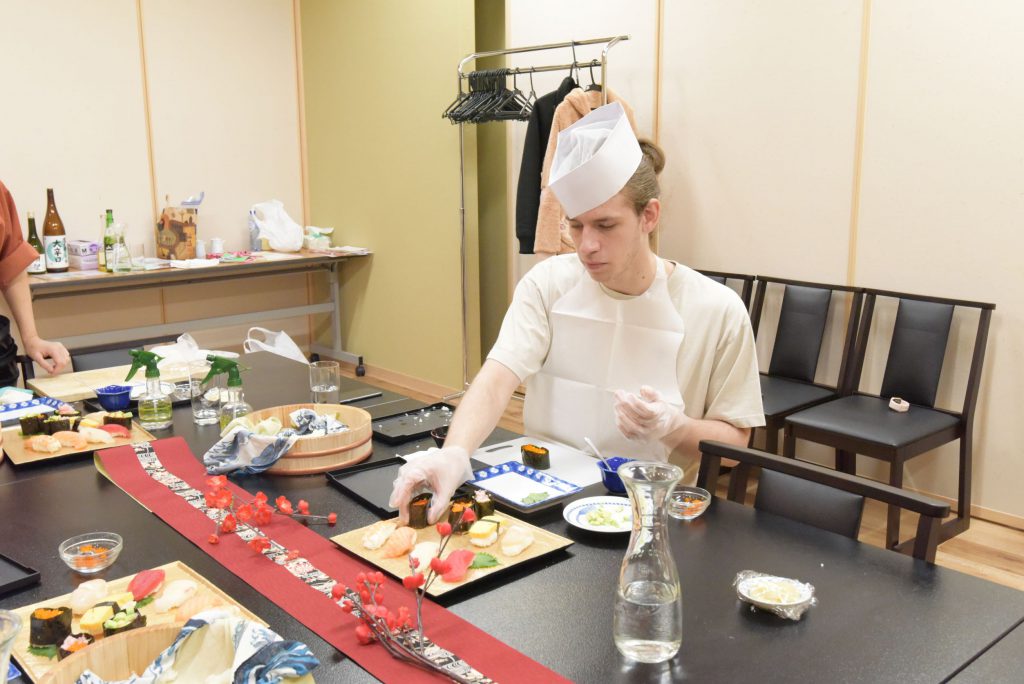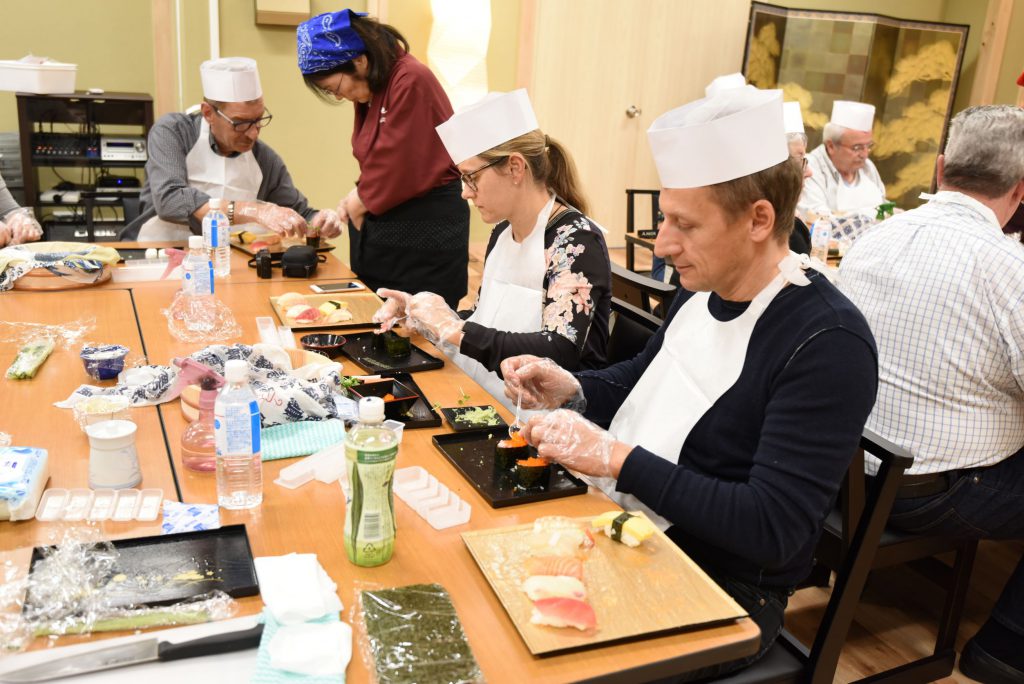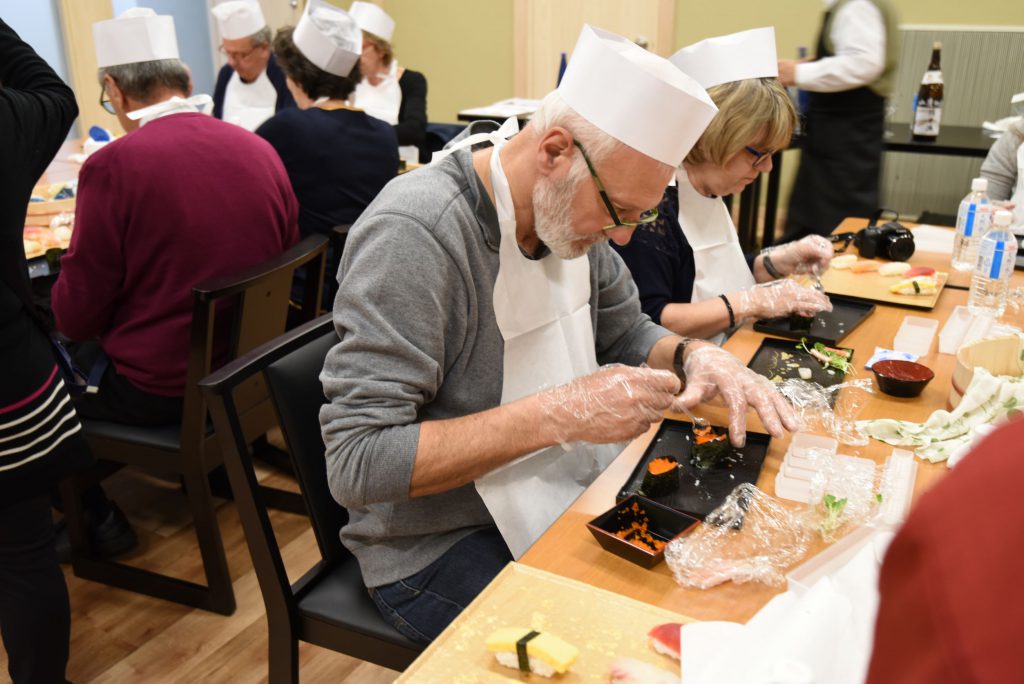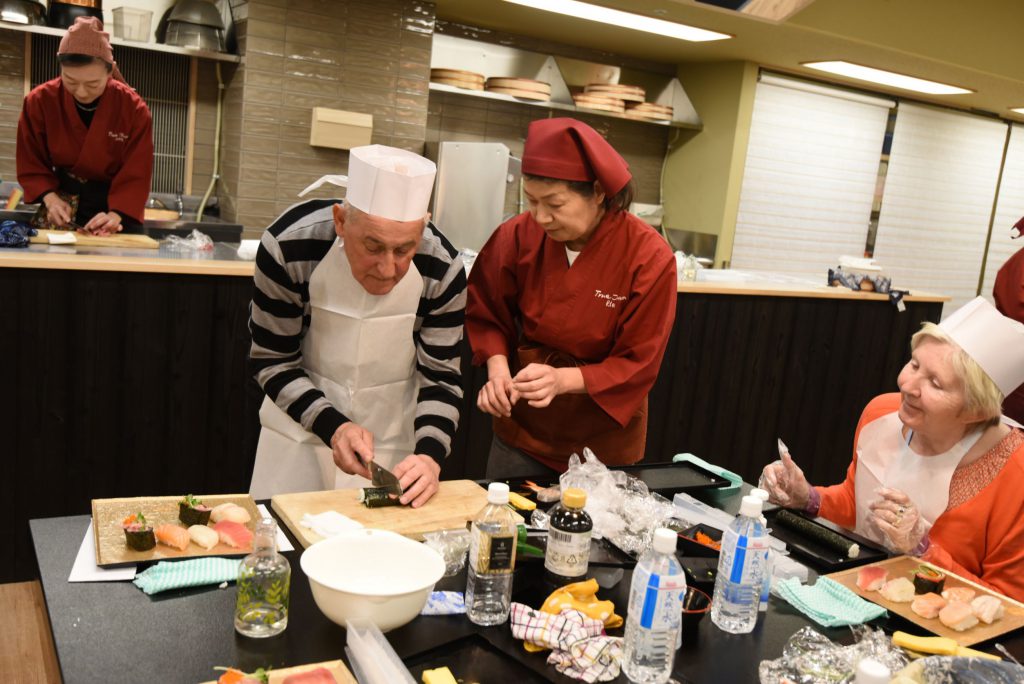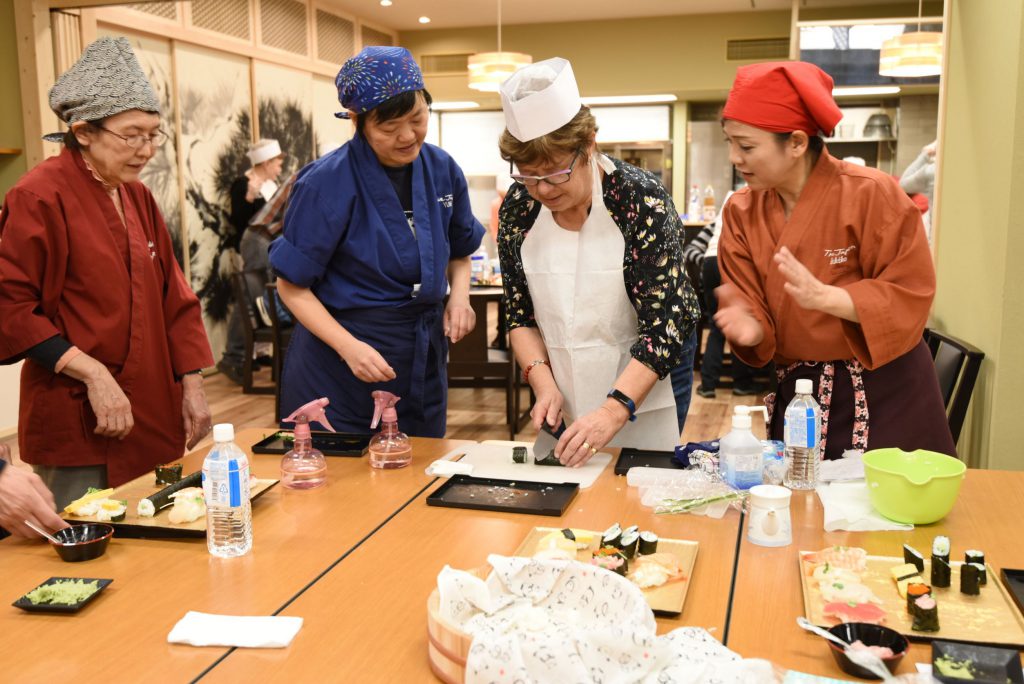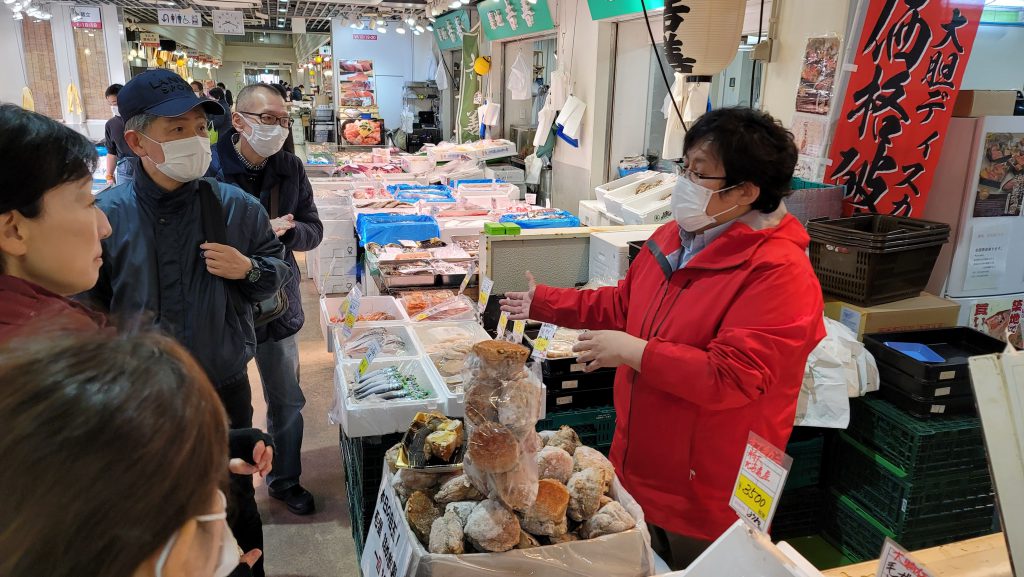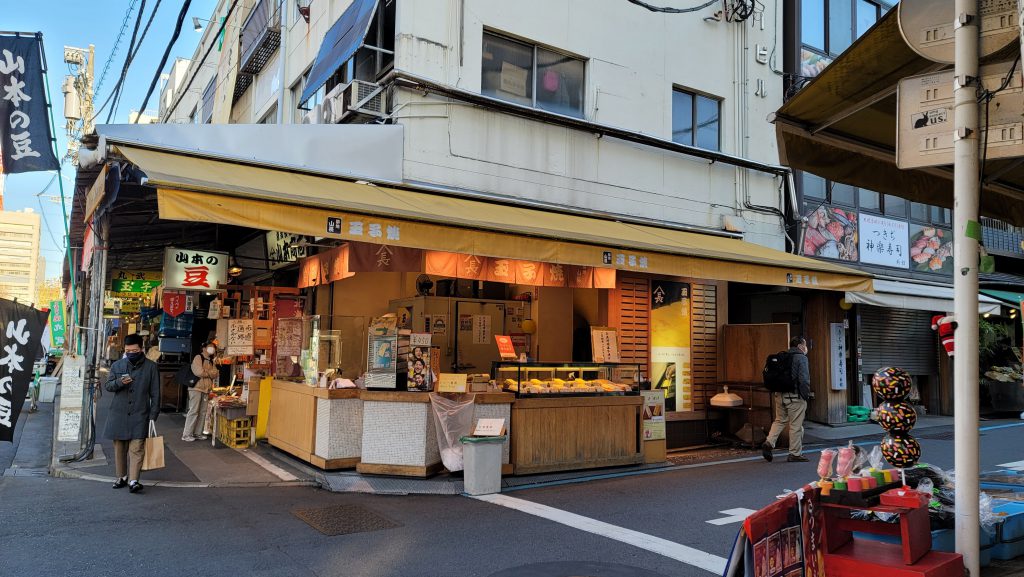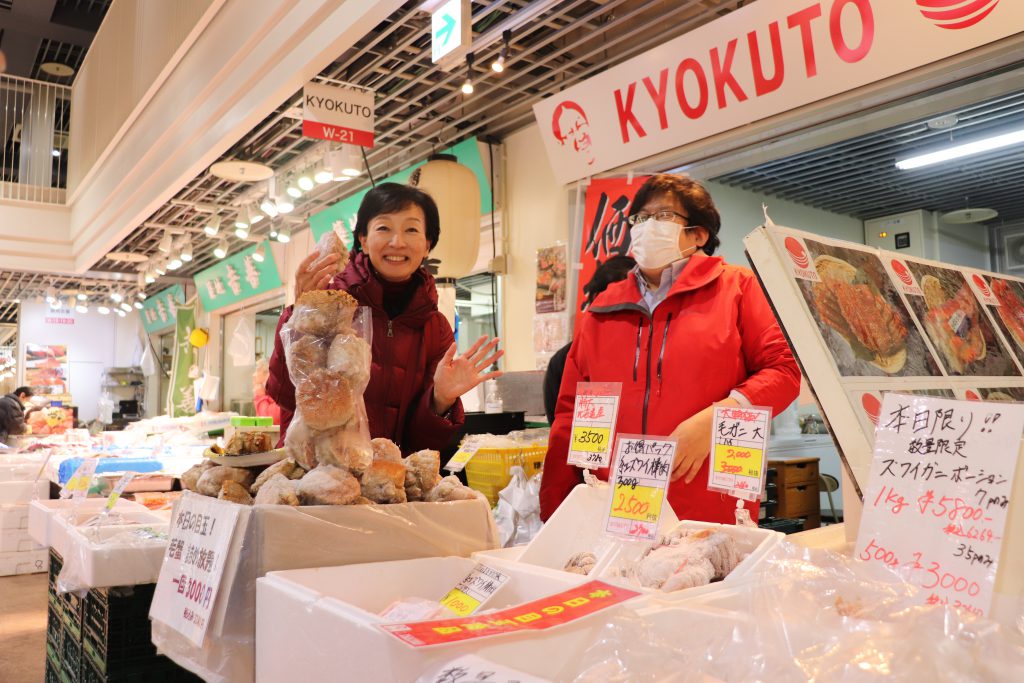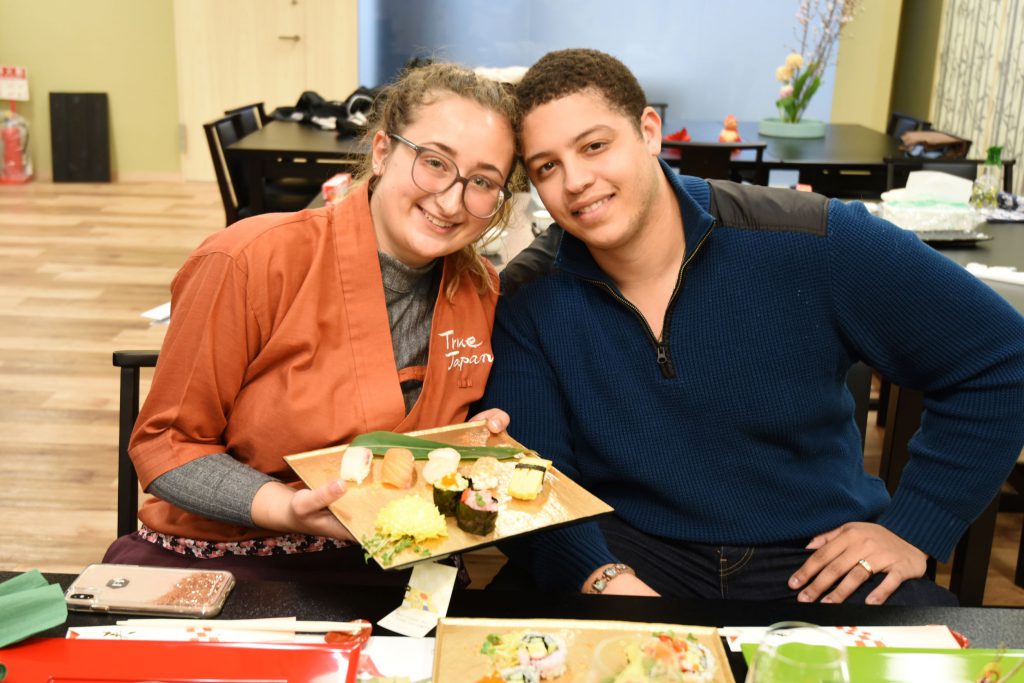Tsukiji Market Tour and Sushi Making Basic Course
C002B
At Tsukiji, a nationally certified guide will guide you through the market where you can find a wide variety of foods such as seafood, Japanese beef, poultry, and processed products.
After the tour, we will move to a kitchen in Shiba Park to experience sushi making.
HIGHLIGHT
◆ Walk through Tsukiji Market, the most famous market in Japan,
and see up close fresh seafood, sushi, yakitori skewers, and Wagyu beef etc..
◆ Learn about the history and culture of Tsukiji Market
◆ Practice sushi-making under the guidance of a national licensed instructor
◆ Dietary requirements can be accommodated with advance notice (vegan, kosher, halal, etc.)
◆ Receive an easy-to-use sushi making kit as a souvenir
Students will make the following two types of sushi:
1. Gunkan-zushi: Rice wrapped in nori seaweed topped with soft ingredients such as salmon roe, cod roe, or minced tuna
2. Nigiri-zushi:?Rice topped with sliced fish such as tuna, shrimp, white fish, etc.
WHAT YOU CAN EXPECT
◆Tsukiji Hongwanji Temple
Our tour begins at the main gate of Tsukiji Hongwanji Temple. Tsukiji Hongwanji was founded in the 17th century and is one of the largest temples in Tokyo. Its unique exterior is modeled after ancient Buddhist architecture from India and other South Asian countries, and it is known for its stained-glass windows and numerous animal sculptures, distinctively rare features for a Japanese temple.
◆Tsukiji Market
Following Tsukiji Hongwanji Temple, you will venture to the Tsukiji Outer Market. Opened in 1935, Tsukiji Market was until recently the world’s largest wholesale fish market, and it remains Japan’s most popular food-related tourist destination. With over 360 establishments, it is home to a mix of wholesalers, restaurants, shops, market stalls, and other businesses, some of which can trace their history back to the market’s very beginning. Owing to its closeness to Tokyo Bay, food lovers from all over the country flock to the area in search of the best and tastiest seafood ?? and they stay to marvel at the market’s charismatic workers and unusual products.
While visiting the energetic Tsukiji, you will purchase fresh tuna to enjoy in a sushi-making experience. Once purchased, it is time for the sushi experience!
◆Sushi-Making Experience
To start the program, participants will learn all about the culture of sushi and practice the hygiene techniques necessary to prevent contamination. Your instructor will also tell you a little about the history of the cuisine, and how it has come to be as it is today.
Then you will get to work making your sushi! Though restaurant chefs may make it look easy, acquiring the techniques to make beautiful and artistic sushi pieces can take years of practice. In our lesson, however, you will master some of the basics in just a few hours (with a little help from our handy rice-molding kits should you need them). Using these techniques, you will learn to make two delicious types of sushi: nigiri zushi (classic hand-molded sushi) and gunkan maki (sushi wrapped in nori seaweed).
Our classes are flexible, designed for everyone from beginners to expert chefs, and we offer instruction on handmaking sushi, as well as information on the use of sushi-making kits. Whichever way fits you; we can teach you how to make tasty and photo-worthy sushi that can compete with any of Tokyo’s best sushi joints.
After you have made your sushi, you will then sit down to enjoy it as a tasty meal. As you eat, your instructor will teach you all about the condiments related to sushi, as well as introduce you to Japanese dining etiquette. Our knowledgeable instructors all have high-level language skills, so this conversation can be almost as delicious as the meal. Bon App?tit!
More info
For those who participate in this sushi making experience, the following experiences will be offered at discounted prices:
5 kinds of Japanese sake: 9,800 yen → 5,000 yen
3 kinds of Japanese sake: 3,900 yen → 3,000 yen
5 kinds of Japanese tea 7,800 yen → 5,000 yen
3 kinds of Japanese tea 3,900 yen → 3,000 yen
However, the number of snacks offered during sake tastings will be reduced.
Itinerary
Tsukiji Market→Tsukiji Station → Daimon Station → Zojoji Temple → Kikai Shinko Kaikan Building
CANCELLATION POLICY
・In the event of cancellation, the following fees will apply:
(1) 3-14 days prior to the program: 20% of the program fee
(2) 2 days prior to the program: 50% of the program fee
(3) One day before the program or on the day*: 100% of the program fee
*In the case of a no show, a separate remittance fee will be charged.
There are no reviews yet. Be the first one to write one.
PROGRAM FEE(Excl. consumption tax)
- Fee per Person
- 22,000JPY
- age 6-11
- 15,400JPY
- STARTING TIME
- 8:45~
- DURATION
- 195 mins
- LOCATION
-
Tsukiji Market→Tsukiji, B2F (Kikai Shinko Kaikan Building)
- MINIMUM NUMBER OF PARTICIPANTS
- 2 people
- INCLUSIONS
- ・Guided tours in English by a nationally licensed interpreter
・Sushi-making experience in English
・Sushi kits (to take home as souvenirs)
・Sushi ingredients
・Transportation from Tsukiji to our facility
- EXCLUSIONS
- ・Transportation to the meeting place
・Transportation expenses after leaving the experience site
・Fees for shopping for ingredients other than those required for sushi making
- NOTIFICATIONS
- ◆The minimum number of participants is 2 adults or 1 adult and 2 children.
◆ Be sure to follow the guide's instructions during the program.
We are not responsible for any accidents caused by not following the instructions of the guide.
◆ The time required is an approximate time. Please note that this may change depending on the number of customers and the implementation status.
◆ If you need special consideration due to religious reasons, physical condition (illness, allergies, etc.), or children, age, etc., be sure to contact culture@truejapantours.com in advance to inquire about the possibility.
Please note that we cannot guarantee arrangements for programs purchased without prior inquiry.
◆Our tours and services are mainly offered in English. If you would like to request a service in another language (including Chinese, French, Spanish, German, and Italian), please contact us at culture@truejapantours.com.
We will endeavor to reply to you regarding the availability of the service as soon as possible.
◆Our business hours are from 8:00-17:00 on weekdays and from 8:00-10:00.on Saturday.
Please note that inquiries received outside of business hours will be handled on the next business day.
◆Please contact culture@truejapantours.com in advance to inquire about the availability of this program.
Please note that we cannot guarantee arrangements for programs purchased without prior inquiry.
◆The booking deadline for this program is 10:00am 2 business days (Japan Standard Time) prior to the program.
When booking after this deadline, please email us at culture@truejapantours.com.
Please note that any programs booked after the deadline without an inquiry will not be guaranteed.
Stocker
BOOKMARKS
- Not available.


